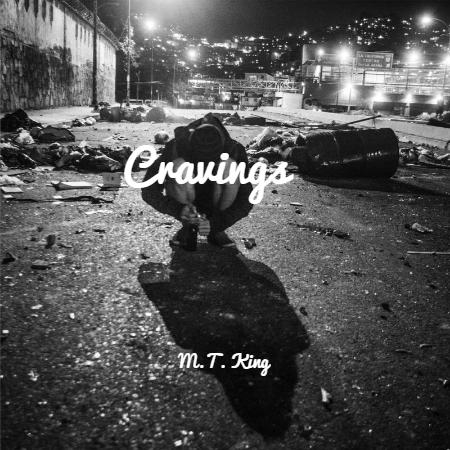The bird soars down from the sky and takes the ice cream cone out of the child's hand. The child cries, turning to her mother, while the seagull flies off, triumphant and three hundred calories heavier. The seagull's bird friends squawk, flying around the pier with nothing but arrogance and glee because they have found another meal to subsist on before the next big win of fish and chips, dropped by the next unwitting tourist.
The little girl, grizzling into the arms of her mother, turns back toward the seagulls and sees a group of tourists, their ice creams still upright. In a fit of jealousy, the girl cries again, throwing her rag doll to the ground.
The tourists see the outburst and offer the girl's mother some money, which she politely declines.
By now, the little girl who lost her ice cream has another ice cream. This time, it's chocolate flavoured. This time, she will make sure she eats it before the seagulls come.
Her mother is now counting her loose change because that money used to buy the last ice cream was to be used for her bus journey home. It means they will have to walk the extra five miles with sore feet to get back to the bedsit they share with five other people, including three men. It means she will have to go without eating so that her daughter can have baked beans on toast for the fifth evening in-a-row.
This trip to the beach is supposed to be a fun day out for the two of them. The little girl's mother had promised they would go somewhere after being stuck at home penniless for the past two months. This, she knew, was no way for a child to live.
But now, her mother realises that the trip wasn't calculated. She did not think about dropped ice cream, the arcades, more ice cream - all of which require the little round pieces of nickel that rule her life, her decisions, her actions.
By the time they arrive back at the bedsit, the little girl's mother is furious. "Why are you so selfish, Libby?" she says. "You know we have nothing, but still you ask. You ask and ask until I have nothing more to give you."
Libby scowls and looks away, feeling confused because all she wanted was a small bag of chocolate buttons on her way home. "I just wanted some chocolate, mummy."
Her mother shakes her head. "Go to your room." Libby goes to her room while her mother takes stock of what she has left. She empties the contents of her purse, and five coins clang onto the cold hard table: a pound, fifty, twenty, ten and five pence piece. With that she now has two choices: either buy her daughter food or cave in to her craving to buy a few cigarettes from John, her flatmate.
Libby's mother checks that her daughter is out of eye-shot and knocks on John's bedroom door. "Yeah?" says a gruff voice.
"It's Kim. Can I come in?"
"Door's open, love."
Kim walks in, clutching the coins that will buy her a few minutes of relief. When she walks out, she's holding three cigarettes in one hand, and a twenty-pound-note in the other.
She wipes the white from her mouth to avoid interrogation from her daughter. "Libby? Where are you, sweets?"
Libby returns with a rag doll clutched under her arm, eyes gleaming. "Uh-huh?"
Kim waves the twenty at her daughter. "Where'd you wanna eat tonight?"
Libby looks confused. "I thought you said we had no money, mum."
"Turns out I had more than I thought I had. Grab your shoes. Let's eat."
Libby runs to her room and comes back immediately, wearing her favourite trainers with the flashing lights. By now the rag doll looks like it's suffocating. "Can we get ice cream?"
Kim puts on Libby's coat. "You can have anything you want."
As Kim steps out the door, she lights a cigarette and takes a long drag of it. The rush of nicotine feels better than scratching a gazillion mosquito bites.
Libby dances up the pathway like a ballerina, the rag doll's legs twirling with her every movement.
Kim turns and sees John standing in the window, his face barely visible against the brightness of the kitchen light. He gives her a look and bows his head.
She tells herself that this will be the last time, that she will quit smoking tomorrow.
But what will happen when the money is spent and her nicotine cravings run wild?
Kim shudders at the thought.
The little girl, grizzling into the arms of her mother, turns back toward the seagulls and sees a group of tourists, their ice creams still upright. In a fit of jealousy, the girl cries again, throwing her rag doll to the ground.
The tourists see the outburst and offer the girl's mother some money, which she politely declines.
By now, the little girl who lost her ice cream has another ice cream. This time, it's chocolate flavoured. This time, she will make sure she eats it before the seagulls come.
Her mother is now counting her loose change because that money used to buy the last ice cream was to be used for her bus journey home. It means they will have to walk the extra five miles with sore feet to get back to the bedsit they share with five other people, including three men. It means she will have to go without eating so that her daughter can have baked beans on toast for the fifth evening in-a-row.
This trip to the beach is supposed to be a fun day out for the two of them. The little girl's mother had promised they would go somewhere after being stuck at home penniless for the past two months. This, she knew, was no way for a child to live.
But now, her mother realises that the trip wasn't calculated. She did not think about dropped ice cream, the arcades, more ice cream - all of which require the little round pieces of nickel that rule her life, her decisions, her actions.
By the time they arrive back at the bedsit, the little girl's mother is furious. "Why are you so selfish, Libby?" she says. "You know we have nothing, but still you ask. You ask and ask until I have nothing more to give you."
Libby scowls and looks away, feeling confused because all she wanted was a small bag of chocolate buttons on her way home. "I just wanted some chocolate, mummy."
Her mother shakes her head. "Go to your room." Libby goes to her room while her mother takes stock of what she has left. She empties the contents of her purse, and five coins clang onto the cold hard table: a pound, fifty, twenty, ten and five pence piece. With that she now has two choices: either buy her daughter food or cave in to her craving to buy a few cigarettes from John, her flatmate.
Libby's mother checks that her daughter is out of eye-shot and knocks on John's bedroom door. "Yeah?" says a gruff voice.
"It's Kim. Can I come in?"
"Door's open, love."
Kim walks in, clutching the coins that will buy her a few minutes of relief. When she walks out, she's holding three cigarettes in one hand, and a twenty-pound-note in the other.
She wipes the white from her mouth to avoid interrogation from her daughter. "Libby? Where are you, sweets?"
Libby returns with a rag doll clutched under her arm, eyes gleaming. "Uh-huh?"
Kim waves the twenty at her daughter. "Where'd you wanna eat tonight?"
Libby looks confused. "I thought you said we had no money, mum."
"Turns out I had more than I thought I had. Grab your shoes. Let's eat."
Libby runs to her room and comes back immediately, wearing her favourite trainers with the flashing lights. By now the rag doll looks like it's suffocating. "Can we get ice cream?"
Kim puts on Libby's coat. "You can have anything you want."
As Kim steps out the door, she lights a cigarette and takes a long drag of it. The rush of nicotine feels better than scratching a gazillion mosquito bites.
Libby dances up the pathway like a ballerina, the rag doll's legs twirling with her every movement.
Kim turns and sees John standing in the window, his face barely visible against the brightness of the kitchen light. He gives her a look and bows his head.
She tells herself that this will be the last time, that she will quit smoking tomorrow.
But what will happen when the money is spent and her nicotine cravings run wild?
Kim shudders at the thought.






